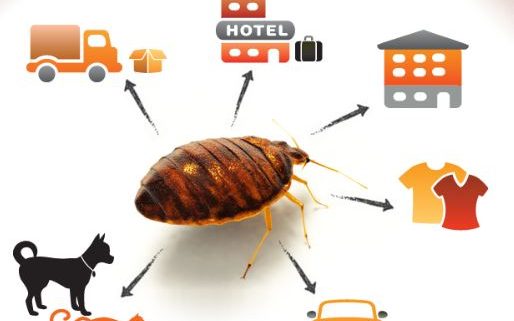Best Kings Pest Control Cincinnati: Premier Pest Control Experts
Best Kings Pest Control Cincinnati: Premier Pest Control Experts
Blog Article
Kinds Of Pest Control: Which Approach Is Right for Your Problem?
When confronted with a parasite problem, the choice of a proper method for bug control is vital in successfully handling the circumstance. From chemical treatments to organic remedies, there exists a variety of methods that can be utilized to address various kinds of parasites. Each approach includes its own collection of factors to consider and benefits, making the decision-making procedure a nuanced one. Recognizing the nuances of each approach and examining their compatibility with the certain insect problem available is vital for achieving long-lasting success in pest monitoring. By checking out the various sorts of insect control techniques available, people can make informed choices tailored to their distinct conditions, making sure a more lasting and effective result in insect obliteration.
Chemical Bug Control
Chemical parasite control involves making use of artificial or naturally acquired chemicals to manage and eliminate pest populaces properly. This method is typically made use of in agriculture, forestry, and residential settings to fight a wide variety of parasites, including insects, rodents, and weeds. Using chemical pesticides can provide quick and targeted services to pest invasions, making it a prominent option for numerous people and services.
Among the crucial benefits of chemical bug control is its capability to promptly get rid of bugs, minimizing the threat of damages to crops, property, and human health. By utilizing specific chemicals that target certain parasites, this approach can successfully manage problems while lessening harm to helpful organisms and the environment when applied correctly.
Nevertheless, using chemical bug control additionally increases issues regarding prospective unfavorable effects on non-target varieties, water resources, and human health. It is essential to comply with safety standards, apply chemicals responsibly, and take into consideration alternate insect control methods to decrease these dangers and ensure lasting insect management practices.
Biological Pest Control
Biological parasite control, also known as biocontrol, makes use of living organisms to take care of and decrease insect populaces naturally. This approach utilizes the power of nature to regulate bugs without the requirement for artificial chemicals. Biocontrol can involve the intro of natural opponents of the pest varieties, such as predators, bloodsuckers, or pathogens, to reduce parasite populaces. By utilizing the bug's natural killers or pathogens, biological parasite control offers a eco pleasant and sustainable option to pest management.

Mechanical Pest Control
Making use of physical and hand-operated methods to take care of bug populations, mechanical parasite control uses an alternative approach that does not depend on the usage of living organisms or artificial chemicals. This method entails making use of obstacles, traps, or other tools to physically hinder or get rid of pests. By blocking pest entrance factors or establishing catches to catch them, mechanical bug control can properly minimize infestations without introducing chemicals right into the environment.
One typical instance of mechanical pest control is the use of mesh screens on doors and windows to avoid pests from entering structures. This simple yet efficient approach serves as a physical obstacle, maintaining parasites out while enabling correct ventilation. Furthermore, tools like mousetraps, fly swatters, and ultrasonic repellents fall under the mechanical insect control classification.
While mechanical pest control methods can be labor-intensive and need normal monitoring and maintenance, they use a ecologically friendly and sustainable option for handling parasite infestations. By combining different mechanical techniques, homeowner can create a detailed parasite control approach that minimizes reliance on chemical pesticides.
Physical Pest Control

Some usual physical insect control approaches include making use of barriers such as internet or screens to stop pest access, catches to catch and remove bugs, and hand-picking to physically eliminate parasites from plants or structures. Furthermore, techniques like warm therapies can be utilized to regulate pests like bed insects by raising the temperature to degrees that are lethal to the bugs.
Physical parasite control is particularly valuable in integrated bug monitoring (IPM) techniques, where several insect control techniques are combined for effective bug monitoring while reducing making my blog use of chemicals. By utilizing physical pest control strategies, people can effectively attend to parasite infestations with minimal ecological influence.
Integrated Pest Management
When carrying out physical parasite control approaches as part of pest monitoring techniques, Integrated Bug Monitoring (IPM) becomes a comprehensive approach that leverages different methods to effectively manage pest populations. IPM concentrates on long-lasting avoidance of bugs via a mix of biological, social, physical, and chemical tools tailored to certain parasite problems. By integrating several control techniques, IPM intends to lessen the dangers connected with bugs while likewise minimizing dependence on chemical services.
One secret aspect of IPM is the emphasis on surveillance and analyzing pest populations to identify the most suitable control techniques. This proactive approach enables early treatment and targeted approaches, bring about a lot more effective insect management. Additionally, IPM advertises ecologically friendly practices by focusing on non-chemical control techniques and just making use of chemicals as a last resort.
Final Thought

By making use of the parasite's all-natural killers or microorganisms, biological insect control provides a ecologically friendly and sustainable option to pest administration. - Kings pest control Cincinnati Ohio
Utilizing manual and physical approaches to handle insect populations, mechanical parasite control supplies an alternate approach that does not rely on the usage of living organisms or synthetic chemicals.A reliable technique to managing bug populations without counting on chemical or biological methods involves the usage of physical insect control strategies.When carrying out physical bug control methods as component of insect monitoring approaches, Integrated Insect Monitoring (IPM) arises as a thorough strategy that leverages various strategies to efficiently control pest populaces. Chemical linked here pest control includes the usage of pesticides, organic pest control uses natural predators, mechanical parasite control includes physical obstacles, physical bug control includes capturing or removing bugs, and integrated insect monitoring combines numerous approaches for an alternative strategy to pest control.
Report this page